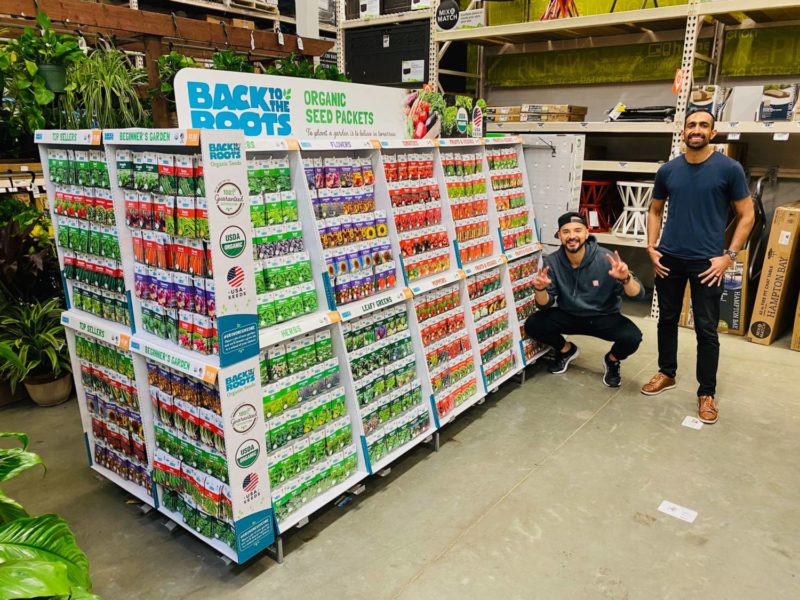Growing a More Sustainable Future
Any good gardener knows the importance of adaptability: to pesky pests and weeds; to unexpected heat waves; to new arrangements and the unpredictable whims of plants themselves. As a gardener, to grow — in the literal and figurative sense — means being willing to try new approaches, tools and resources. To grow as an industry, we must be willing to do the same.
AN EVOLVING INDUSTRY
What does evolution look like for the lawn and garden category? It means adapting to current times — how families are growing, what they’re growing, and why they’re growing — by meeting a new generation of gardeners where they are. It also means leading the way in sustainability — making sustainable products and practices the norm rather than the exception. Sustainability isn’t a nice-to-do anymore; it’s a must-do.
And that change is what drives us at Back to the Roots as we work to bring a new generation into the garden by making it accessible, easy and fun — regardless of backyard size, time or how green your thumb is. Our mission is clear — we want to inspire every kid in America to experience the magic of gardening, helping them form a deeper connection with the land and where their food comes from.

But to ensure that gardening doesn’t end as a Baby Boomer hobby, we must challenge ourselves on how to engage and excite an upcoming cohort of gardeners. And the answer has to be deeper than just talking about the ounces of herbs or tomatoes we can help someone grow — it’s about focusing on the joy, the community and the sustainability of gardening.
In a recent Pew Research Center survey (https://pewrsr.ch/3noE1Fo), roughly seven in 10 millennials and members of Generation Z said they believed that addressing climate change “should be [a] top priority to ensure [a] sustainable planet for future generations.” About one-third of Gen Z-ers and more than a quarter of millennials reported having personally taken actions to help address climate change within the last year. Young people are actively looking for ways to do their part — handing the garden industry a major opportunity to bring potential new growers into the fold.
Growing one’s own food and nurturing a close relationship with the land are, in theory, some of the most environmentally sustainable things we can do. But when we take a closer look at the horticulture industry, that same spirit of sustainability that should be innate in the work we all do isn’t always reflected. From mined peatlands that end up in almost every soil bag in the country, to the use of toxic herbicides and pesticides, to the millions of pounds of virgin plastic used for plant pots, there is room for vast industry wide improvement.
FROM NICE-TO-DO TO MUST-DO
The United Nations’ recent 2021 Climate Report underscored the urgency of drastically reducing emissions, for the sake of our Earth’s — and our children’s — future. The horticulture industry has an opportunity to lead this change, paving the way for a healthier and more sustainable tomorrow.
Young people have shown they want to grow, with more than 10 million new millennial gardeners entering the category within the past year. But for this up-and-coming generation of growers to remain passionate and engaged, we as an industry will need to evolve by returning gardening to its roots — championing sustainability, removing toxicity, and channeling the joy, peace and connectedness that inspire us to grow in the first place.
We ask you to join us in not just growing together, but growing together with the future in mind — keeping the world our kids and grandkids are going to inherit into each of our product decisions.


 Video Library
Video Library 




















